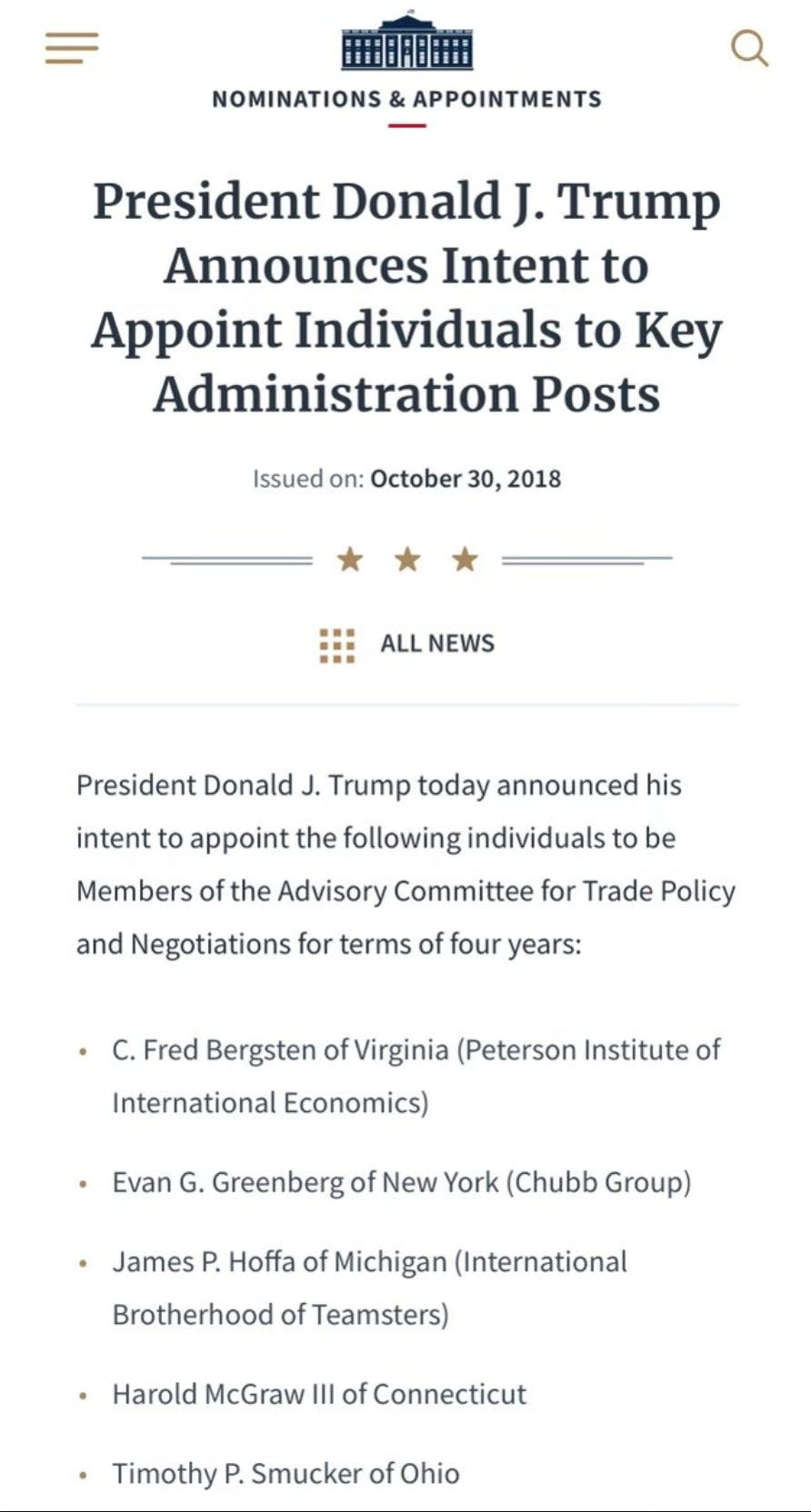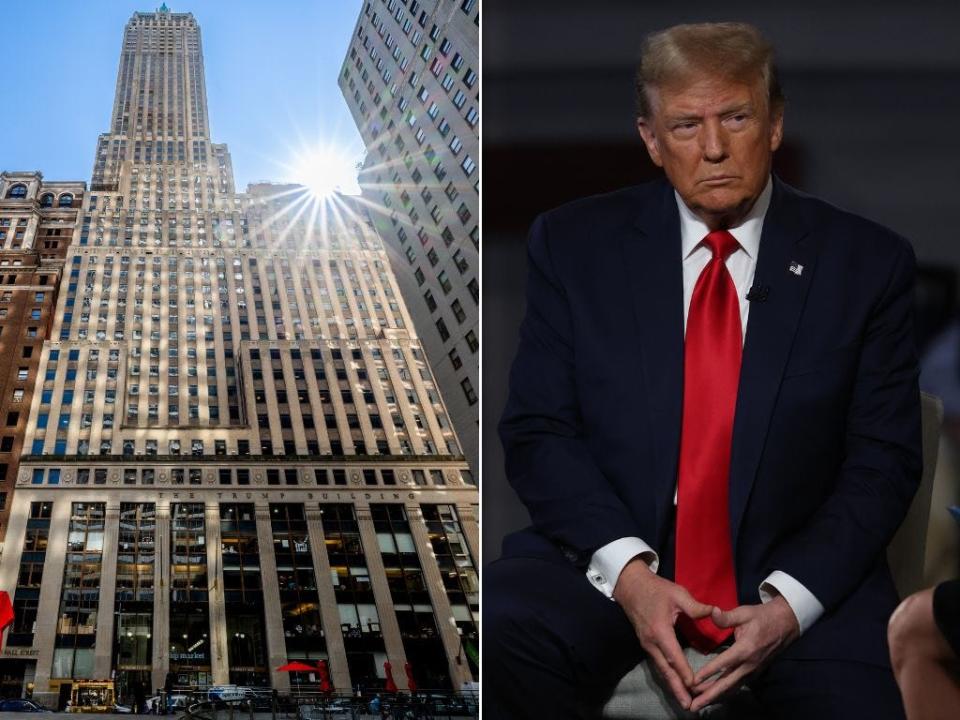Out of options, Trump will pay $500M cash bond to appeal his NY fraud case, experts predict. Not paying will hurt even more.
Trump must stow $500M cash in a bank to cover the appeal bond for his NY fraud case, experts say.
If he fails to by March 25, NY will start seizing assets, the state attorney general has warned.
A premium of anywhere from $250K to $1M will push the cost of a bond even higher.
One fiscal kick-in-the-gut down, one more to go for Donald Trump.
On Friday, Trump posted a bond in his E. Jean Carroll defamation case — it's backed by $93 million experts say he most likely pulled out of his own wallet in the form of ready or borrowed cash.
This small fortune will now sit in a bank, untouchable, until Trump exhausts his appeals and the ultimate winner takes all.
His next appeal bond will cost him far more.
The presumptive GOP presidential candidate still owes a $455 million fraud penalty to New York Attorney General Letitia James — a debt that comes due March 25, the same day as jury selection for his Manhattan hush-money trial.
"Grossly excessive," he called the sum in a bulky, 1,794-page appellate filing last week.
But despite his protests, a Manhattan appeals court has declined to lessen or delay what Trump must pay, at least for now. So Trump's deadline clock keeps ticking.
Surety experts and professionals say Trump must come up with half-a-billion in cash for a fraud-case appeal bond before that March 25 deadline, or else risk state liens and even the forced seizure and Sheriff's sale of his properties.
"All you have to do is give the judgment to the Sheriff and say, 'Sheriff, Donald Trump owns this. We want you to sell it,'" said Eric Snyder, a bankruptcy attorney and an expert in judgment enforcement.
"It's as easy as that. And the Sheriff will say, 'Sure. Since I get five percent under New York law, I'll be glad to sell it,'" Snyder added.
"It happens pretty quickly."
Can't Trump just declare bankruptcy?
This is Trump's least likely option right now, experts say.
Like any lawsuit loser who faces a giant penalty, Trump can file for Chapter 11 bankruptcy. This move tends not to work out for litigants with lots of money, as the NRA found out in 2021.
A doomed bankruptcy effort could buy a little time. But Trump is the frontrunner for the 2024 Republican presidential nomination. Going bankrupt would not be a good look, politically, for Trump, who likes to be seen as fabulously wealthy. "I have a lot of money," he told Fox on Tuesday, even as his lawyers claimed otherwise.
Option two: show them the money
To meet his March 25 deadline, Trump must show the state and his Manhattan fraud case judge, New York Supreme Court Justice Arthur Engoron, that he has set aside the $455 million in cash he now owes from last month's civil fraud judgment.
How does Trump prove he has set the money aside? By posting another appeal bond. Similar to the more familiar jail bond, an appeal bond is a promise of payment that's backed by collateral, meaning cash or property.
"I'll bet you a pastrami sandwich" that Trump will post bonds for both judgments, predicted Snyder, who is bankruptcy chair at Wilk Auslander LLP.
"He's not going to have any choice," said Snyder.
The process of getting an appeal bond begins with hiring a surety agent to shop around for the best deal, said Julie Alleyne, general counsel for the Surety & Fidelity Association of America.
The agent's job is to negotiate with potential surety insurers, shopping for the best deal.
Trump has already struck up a relationship with the Federal Insurance Company, a subsidiary of the Chubb Group, which underwrote his $93 million Carroll appeal bond.
The relationship goes back at least to 2018, when Trump appointed Chubb CEO Evan G. Greenberg to a key trade advisory committee.

"Chubb is very respected, but conservative," said Neil Pedersen, owner of the surety bond agency Pedersen & Sons.
"Chubb can easily do a $500 million bond," he said. "They can do a billion-dollar bond."
The surety insurer will have taken a close look at Trump's financial fitness before putting together an offer.
"The offers would vary, depending on the surety company's appetite for that kind of bond," Alleyne said.
The agent would push for the lowest premium, which is the (generally) non-refundable price Trump must pay the carrier for putting together the bond.
The premium on a half-billion-dollar appeal bond could run anywhere from $250,000 to north of one million dollars, just to purchase the bond, experts guestimated.
Multiple carriers can chip in on underwriting any single giant bond, Alleyne noted.
And the carrier or carriers will likely take reputational risk into account in setting their terms, noted Pedersen.
"Regardless of whether you love him or hate him, everyone has an opinion on Trump," Pedersen said.
One thing is certain, bonding professionals told Business Insider: any bank and surety carrier will want to see cash or liquid assets such as securities — not property — as collateral.
Cash on the barrelhead
That means Trump will need a bank, or multiple banks, on board.
Trump seems not to have that much cash on hand, judging from the little he's revealed in financial documents and court papers.
Estimates of his liquidity have ranged from $350 million (what Trump claimed in a 2021 financial filing) to "substantially in excess of $400 million," (what Trump swore in a deposition in April), all the way up to $600 million (according to estimates by Forbes and Bloomberg).
He may need a loan, as defense lawyers suggested in successfully asking a fraud-case appellate judge for permission to borrow to meet his obligations.
"No one, including Jeff Bezos, Elon Musk and Donald Trump, has five hundred million laying around," lead defense lawyer Christopher Kise told the judge at a recent hearing.
Wherever he gets the $500 million, Trump would still need to park it in one or more interest-bearing bank accounts for the duration of his appeals, experts said.
Once the money's parked, Trump's bank or banks would give the bond underwriter — Chubb or any other carrier — what's known as an "irrevocable letter of credit."
That's a guarantee from the bank saying Trump has the judgment money set aside with them, and he can't touch it until the appeal is decided. Whoever wins the appeal gets the cash.
"You want cash, you want an irrevocable letter of credit, you want anything but real estate," when underwriting bonds of this size, said Pedersen.
Because if Trump loses his appeal in the fraud case, he'll have only 10 days to turn the judgment over, in cash, to the state.
"How do you turn real estate into cash in just 10 days?" Pedersen said.
A warning from Letitia James
"If he does not have funds to pay off the judgment, then we will seek judgment enforcement mechanisms in court, and we will ask the judge to seize his assets," James, the state AG, told ABC News last month.
And she knows where to find them. After five years of looking at the Trump Organization's books, James' office knows more about Trump's worth than anyone besides the former president himself.
Forbes estimates that Trump's net worth includes some $690 million in real estate assets in New York City alone.
That includes $287 million for his 30 percent stake in 1290 Avenue of the Americas, a Midtown Manhattan commercial skyscraper.
It also includes the $80 million net value of Trump's ground lease for 40 Wall Street, a Financial District skyscraper.

Trump's fraud trial judge found he fraudulently doubled the worth of his stake in 40 Wall Street in financial statements for the years 2012 and 2015.
The skyscraper bears the name "The Trump Building" on its facade, and happens to be right next door to a taller building that houses AG's Financial District offices.
James can see 40 Wall Street, aka The Trump Building, through her conference room windows.
"Open the curtains," Trump had urged, inviting the AG and her lawyers to admire his skyscraper during a pretrial deposition he was forced to sit for in April.
"Open the curtain, go ahead," he cajoled.
"It's right here," he told them. "I just looked out the window."
At the time, a transcript shows, state officials declined Trump's request to look at his building. But James is clearly keeping her eye on it now.
"We are prepared to make sure that the judgment is paid to New Yorkers," James told ABC, warning of the consequences should Trump default.
"And yes," she added, "I look at 40 Wall Street each and every day."
Read the original article on Business Insider


